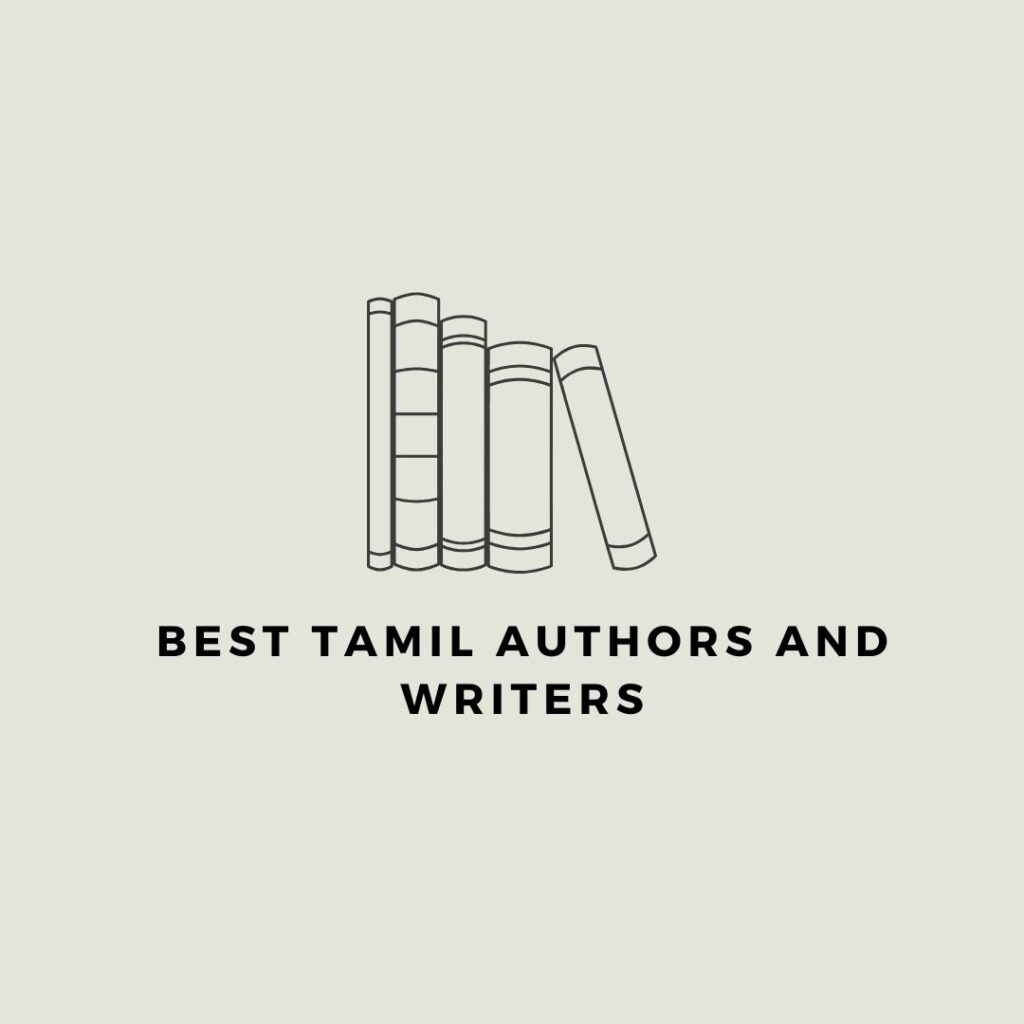Tamil Authors and Writers
Tamil literature is rich and diverse, with a history that spans thousands of years. It has produced numerous authors and poets whose works have left an indelible mark on the literary landscape, not just in Tamil Nadu but across the globe. This blog post will explore the lives and contributions of notable Tamil authors and writers, their significant works, and the impact they have had on literature and society.

Table of Contents
Historical Context of Tamil Literature
Tamil literature can be traced back to the Sangam period (approximately 300 BCE to 300 CE), which was characterized by a flourishing of poetry and prose. This era laid the foundation for a rich literary tradition that has evolved over centuries.
The Sangam Age
The Sangam age was marked by gatherings of poets who composed works that reflected the social, political, and cultural dynamics of ancient Tamil society. The literature produced during this time is known as Sangam literature, which includes:
- Anthologies: Collections like Ettuthokai (Eight Anthologies) and Pattupattu (Ten Idylls).
- Themes: Love (Akam), valor (Puram), governance, trade, and the human experience.
- Notable Works: Key texts include Tolkappiyam, Silappathikaram, and Manimekalai.
Notable Tamil Authors and Their Contributions
1. R. K. Narayan
Though primarily known for his contributions to English literature, R. K. Narayan’s roots in Tamil culture are significant. Born in Chennai in 1906, his works often reflect South Indian life through his fictional town of Malgudi.
- Key Works: “Swami and Friends,” “The Bachelor of Arts,” “The Guide.”
- Impact: Narayan’s simple yet profound storytelling has made him a beloved figure in Indian literature.
2. Kalki Krishnamurthy
Kalki Krishnamurthy (1899-1954) is one of the most celebrated figures in Tamil literature, known for his historical novels.
- Key Works: “Ponniyin Selvan,” “Sivagamiyin Sapatham.”
- Legacy: His meticulous research and engaging narratives have made his historical novels timeless classics that continue to be read widely today.
3. Jayakanthan
Jayakanthan (1934-2018) was a prolific writer whose works addressed social issues such as caste discrimination and women’s rights.
- Key Works: “Sila Nerangalil Sila Manithargal,” “Agni Pravesam.”
- Contribution: His powerful narratives and thought-provoking themes have earned him a revered place in Tamil literature.
4. Sujatha Rangarajan
Sujatha (1935-2008) was a versatile writer known for his contributions to various genres, including science fiction.
- Key Works: “En Iniya Iyanthira,” “Meendum Jeano.”
- Influence: He is credited with popularizing science fiction in Tamil literature through imaginative plots that blend scientific concepts with engaging storytelling.
5. Perumal Murugan
Perumal Murugan (born 1966) is a contemporary Tamil author whose works have sparked significant debates regarding societal norms.
- Key Works: “Madhorubhagan” (“One Part Woman”), “Pondatti Sonna Kettukanum.”
- Recognition: His lyrical prose and unflinching portrayal of complex human emotions have garnered critical acclaim both in India and internationally.
6. Ashokamitran
Ashokamitran (1931-2017) was known for his insightful short stories and novels that often explored everyday life with subtlety and humor.
- Key Works: “Thanjai Periyar,” “Tiruchengodu.”
- Style: His works are characterized by their irony and exploration of human relationships.
7. Thi. Janakiraman
Thi. Janakiraman (1921-1982) was a significant figure in 20th-century Tamil literature, known for his novels that often depicted social issues.
- Key Works: “Mogamul,” “Sembaruthi.”
- Achievements: He received the Sahitya Akademi Award for his contributions to Tamil literature.
Thematic Elements in Tamil Literature
Tamil authors often explore several recurring themes that resonate across generations:
- Social Justice: Many writers address issues such as caste discrimination, gender inequality, and poverty.
- Cultural Identity: The exploration of Tamil identity, traditions, and values is prevalent.
- Human Relationships: The complexities of love, friendship, and familial bonds are frequently depicted.
- Historical Narratives: Historical fiction remains a popular genre, bringing past events to life through storytelling.
The Influence of Tamil Authors on Society
The contributions of Tamil authors extend beyond literature; they have played crucial roles in shaping societal attitudes and cultural identity:
- Awareness Raising: Many authors use their platforms to raise awareness about social issues, encouraging readers to reflect on societal norms.
- Cultural Preservation: Through their works, these writers preserve the rich heritage of Tamil culture for future generations.
- Inspiration for Future Generations: Contemporary writers often draw inspiration from classic Tamil literature, ensuring its legacy continues.
Frequently Asked Questions (FAQs)
1. Who are some notable Tamil authors?
Some notable Tamil authors include:
- Kalki Krishnamurthy: Known for historical novels like “Ponniyin Selvan.”
- Jayakanthan: Celebrated for addressing social issues in works like “Sila Nerangalil Sila Manithargal.”
- Sujatha Rangarajan: A versatile writer known for science fiction and novels like “En Iniya Iyanthira.”
- Perumal Murugan: Recognized for his contemporary works such as “Madhorubhagan.”
- R. K. Narayan: Though primarily an English writer, his works reflect Tamil culture.
2. What themes are commonly explored in Tamil literature?
Common themes in Tamil literature include:
- Social Justice: Issues of caste discrimination, gender inequality, and poverty.
- Cultural Identity: Exploration of Tamil traditions, values, and identity.
- Human Relationships: Complexities of love, friendship, and family dynamics.
- Historical Narratives: Bringing past events to life through storytelling.
3. What is the significance of the Sangam period in Tamil literature?
The Sangam period (approximately 300 BCE to 300 CE) is significant because it marks the beginning of Tamil literature with a flourishing of poetry and prose. This era produced foundational texts that reflect the social, political, and cultural dynamics of ancient Tamil society.
4. How has Tamil literature evolved over time?
Tamil literature has evolved from ancient Sangam poetry to modern narratives that address contemporary issues. The transition includes the introduction of various genres, such as novels, short stories, and plays, reflecting changes in society and culture.
5. How do contemporary Tamil authors differ from classical writers?
Contemporary Tamil authors often address modern social issues and incorporate diverse narrative styles, while classical writers focused on themes relevant to their time, such as heroism, love, and ethics. Contemporary literature also tends to be more experimental in form and content.
6. Are there any awards for Tamil literature?
Yes, several prestigious awards recognize contributions to Tamil literature, including:
- Sahitya Akademi Award: Given by the Sahitya Akademi for outstanding literary work.
- Tamil Nadu State Literary Awards: Presented by the government of Tamil Nadu for excellence in various literary categories.
7. How can I access works by Tamil authors?
You can access works by Tamil authors through:
- Local bookstores or libraries specializing in regional literature.
- Online platforms that sell or provide e-books in Tamil.
- Literary festivals or events where authors may be featured.
8. What impact have Tamil authors had on society?
Tamil authors have significantly influenced societal attitudes by raising awareness about social issues through their writings. Their works often encourage readers to reflect on cultural norms and inspire movements for social change.
9. Can you recommend any modern Tamil authors?
Certainly! Some modern Tamil authors worth exploring include:
- Perumal Murugan: Known for his thought-provoking narratives.
- Vaasanthi: Recognized for her novels that address women’s issues.
- Bama: An author who writes about Dalit experiences and identity.
10. How can I learn more about Tamil literature?
To learn more about Tamil literature:
- Read anthologies that compile notable works from various authors.
- Attend literary discussions or workshops focusing on Tamil writing.
- Explore online resources or courses dedicated to studying Tamil literature.
Conclusion
Tamil authors have significantly enriched the literary landscape with their diverse voices and perspectives. From historical narratives to contemporary social critiques, their works continue to inspire readers across the globe. By exploring the lives and contributions of these literary giants, we gain insight into the complexities of human experience as expressed through Tamil literature.
Discover marketing services, interviews & publishing tools at SharingStories.


